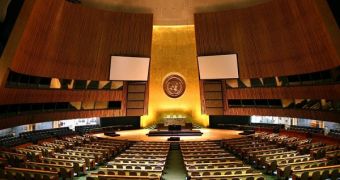The city of Poznan, in Poland, will be, throughout this week, host to one of the largest UN Climate Change meetings in history, a part of a two year-long effort on behalf of the international organization, to come to an agreement on what is to be done on the issue of the global environment by 2009.
The effort, started in 2007, will end in December 2009, when leaders from all UN states will meet in Copenhagen, to discuss, and hopefully sign, a new treaty, that will replace the Kyoto Protocol, which expires in 2012. "We must focus on the opportunities for green growth," said Yvo de Boer, the head of the UN Climate Change Secretariat.
The global financial crisis casts doubts on the meeting, as some nations will most likely try to use the economic argument to escape any legislation that will try to impose a cap on their greenhouse gas (GHG) emission levels. De Boer says that this is the time to "reshape" the way governments look at economy, and that green energy should not be looked at as something out of the ordinary, but as a natural course of action, if countries are to reduce their emissions.
The UN expressed its confidence that the US and China, as the two largest polluters in the world, will sit down at the table and discuss future action plans seriously, as their examples will undoubtedly drive other countries' actions as well. Some 10,600 delegates will have to come to an agreement, including businessmen, high state officials and ministers.
De Boer also voiced his admiration for Obama's "ambitious" plan, of cutting down GHG emissions to 1990 levels by 2020, while also aiming at reducing them a further 80 percent by 2050. If the president-elect states these goals officially in Poznan, this would somehow force China to comply as well, or otherwise it would risk being exposed to international criticism and even sanctions.
The conference in Poland will end December 12th, and a meeting of the European Union is scheduled to take place December 11-12. If the international effort succeeds, we might witness the pre-approval of the new international treaty on climate change, which will replace the Kyoto Protocol starting next year.

 14 DAY TRIAL //
14 DAY TRIAL //